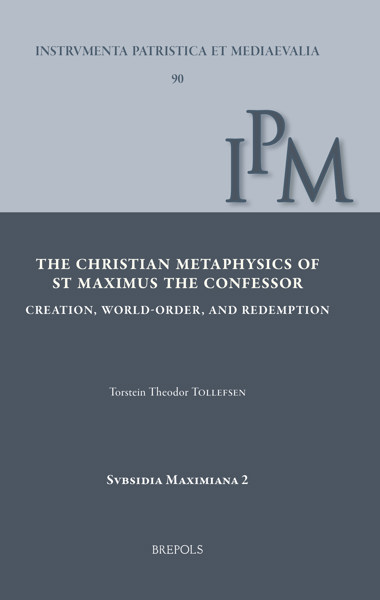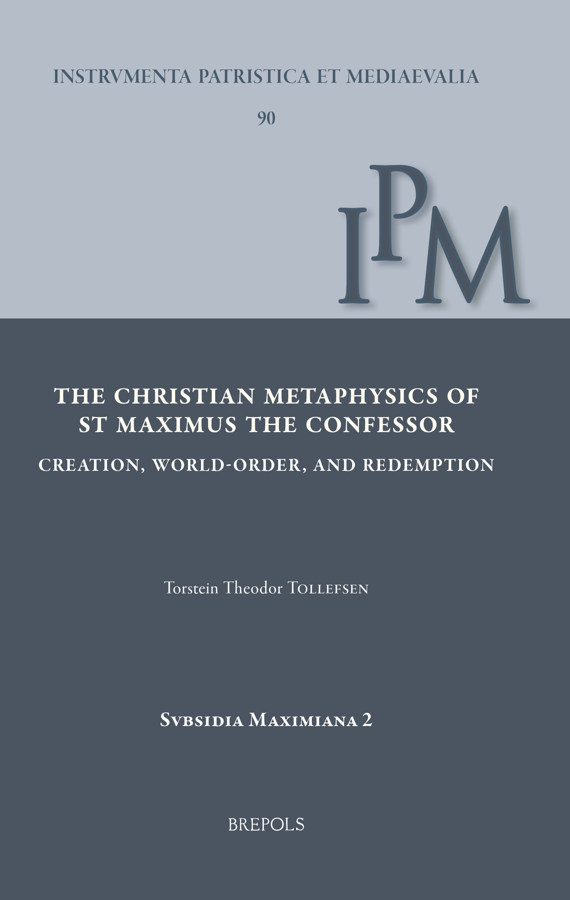
The Christian Metaphysics of St Maximus the Confessor
Creation, World-Order, and Redemption
Torstein Theodor Tollefsen
- Pages: 260 p.
- Size:156 x 234 mm
- Language(s):English
- Publication Year:2023
- € 70,00 EXCL. VAT RETAIL PRICE
- ISBN: 978-2-503-60085-7
- Hardback
- Available
- € 70,00 EXCL. VAT RETAIL PRICE
- ISBN: 978-2-503-60086-4
- E-book
- Available
In the final part of the book, the author applies Maximian metaphysics to a major ethical challenge in our days: the environmental crisis, thus proving that late antique philosophy still has relevance today. AsTollefsen notes: "No scientific practice and no scientific world-view (...) is without a metaphysical framework".
"(…) Tollefsen is keenly aware that since the topics that he explores have been the scenes of perennial philosophical contention, since they concern basic questions about reality, human and otherwise, they are worth considering in themselves. This is made plainly explicit in the final chapter, ‘Corollaries,’ in which Tollefsen argues that the metaphysics of Maximus could be useful for developing a more reasonble and fruitful environmental ethic, even if Maximus did not explore this question himself." (Carl Vennerstrom, in: Journal of Early Christian Studies, 32, 2024, p. 484-485)
« La modestie et la finesse de l’A[auteur] qui envisage à la fois son incapacité parfois à comprendre la pensée difficile et fragmentaire de Maxime et les possibles contradictions du Confesseur font de ce livre un régal pour l’esprit. Le recours aux Capita de Caritate, à l’Expositio Orationis Dominicae et à la Mystagogie permet d’équilibrer la vision qu’il propose de Maxime par rapport aux seuls Ambigua ad Johannem et Quaestiones ad Thalassium. Ce livre est appelé à devenir un classique... » (Christian Boudignon, dans Revue d'Histoire Ecclésiastique, 120/1-2, 2025, p. 304)
Torstein Theodor Tollefsen is professor of philosophy at the University of Oslo. His main interests are in metaphysics and the philosophy of religion. He works on late ancient and early Byzantine thought and focuses on the interaction and exchange between Christian and pagan philosophy. He has published several books and papers within this field.
This book offers an investigation into the basic structures of St Maximus the Confessor’s thought in the context of ancient and late antique philosophy. The introduction explains what is meant by the term ‘metaphysics of Maximus’, and discusses possible senses of terms like ‘Christian philosophy’ and ‘Byzantine philosophy’. On the background of a definition of ‘Christian philosophy’, the author devotes two chapters to discuss Maximus’ ideas of knowledge of the created world and of God. The chapters that follow are devoted to the doctrine of creation, the function of the so-called logoi (divine Ideas) in the procession and conversion of the totality of beings in relation to God, and the relation between the logoi and the so-called divine activities. The logoi, eternally comprised in God’s knowledge as the divine thoughts in accordance with which everything is created, are then shown to function as principles of a rather complex order of being: the cosmos instituted as a whole-part system. This whole-part system secures the possible communion between all creatures and facilitates the conversion of everything to the divine source as a unity in plurality deified by God. The last chapter treats of the doctrines of Incarnation and deification in order to clarify the exact sense of deification for all beings. In the final part of the book, the author applies Maximian metaphysics to a major ethical challenge in our days: the environmental crisis, thus proving that late antique philosophy still has relevance today.


